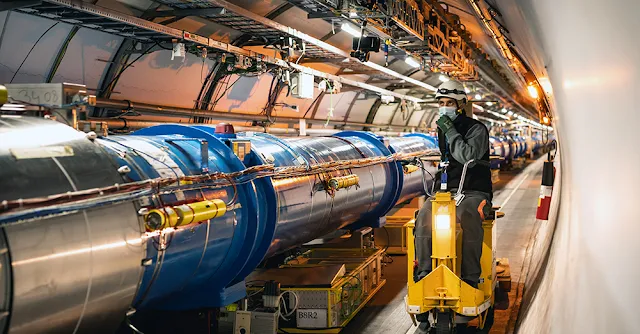On Friday, two beams of protons flew around the Large Hadron Collider, bringing the world's biggest particle accelerator back online after a three-year break. CERN, or the European Organization for Nuclear Research, has spent the last three years maintaining and upgrading the system. Now, the team is getting ready to embark on a four-year data gathering project that scientists believe will unveil new cosmic mysteries.
"In terms of our experiment's capacity to detect, gather, and evaluate data, it will be two to three times better," Marcella Bona, a particle physicist at Queen Mary University of London, told the BBC.
This summer will see the commencement of the LHC's third run, known as Run 3. Because of the modifications made over the last several years, this run will witness a higher number of particle collisions and those collisions will have a higher energy than prior runs. The new capabilities will be used by scientists to test the limitations of the Standard Model of physics, a theory that explains how subatomic particles interact. They'll aim to detect new sorts of particles as well as other tests, and maybe even gain a better image of dark matter, a still-undiscovered element that scientists say accounts for a huge portion of the cosmos. Its existence, however, has yet to be established.
New initiatives will also look into the Higgs boson, a particle identified 10 years ago through research at the LHC.
Bona told the BBC, "It's a tremendously exciting time." "For the past three years, we've been modernizing the machinery. We're all set now."

